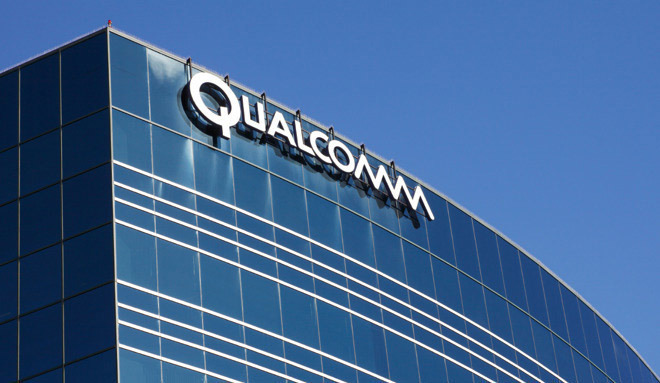Qualcomm has accused Apple of stealing trade secrets and handing them over to Intel, a filing with the Superior Court of California claims, alleging Apple wanted to use the information to improve the performance of chips provided to it via Intel.
The latest activity in the long-running legal fight between Apple and Qualcomm has the chip producer directly accusing Apple of acquiring "vast swaths" of confidential information, reports CNBC. Filed on Monday, Qualcomm is intending for the allegations to be included in an existing lawsuit against Apple, if the court allows an amendment to the suit.
The complaint claims Apple breached the "master software agreement" it signed within the last decade when it became a Qualcomm customer. As part of the agreement, Apple was required to allow Qualcomm to ensure its source code and tools were being appropriately protection, but it is alleged this may not have been the case.
While previously Qualcomm argued it was being prevented from auditing Apple's use of Qualcomm-produced source code, it is now alleged Apple is using the same code and tools with Intel to fix engineering flaws in its chips, against the terms of the agreement.
The discovery was unearthed during its latest lawsuit, which started in November 2017, which is said to highlight Apple engineers repeatedly providing the code and other confidential information under the agreement to Intel's counterparts. While no direct evidence is offered, there are references to communications between the two sets of engineers that suggests such sharing was occurring.
"Unlawful use of Qualcomm's valuable trade secrets to try and help a competitor catch up irreparably harms us and must not be allowed to continue," advised Qualcomm general counsel Donald Rosenberg. According to Rosenberg, the case can stand on its own, and would have been filed regardless of the current dispute's status.
Apple has yet to respond to the allegations.
Qualcomm hopes the new charges will be included in the lawsuit, which is expected to go to court by April 2019.
Qualcomm and Apple have attacked each other in court for quite a few years, largely around allegations of patent infringement, such as with the U.S. International Trade Commission complaint that recently denied an iPhone import ban.
Apple has also accused Qualcomm of abusing its "monopoly power" over the wireless modem industry to demand excessive royalties, including withholding almost $1 billion in promised rebates as retribution for Apple's participation in a South Korean antitrust investigation against the chip producer.
 Malcolm Owen
Malcolm Owen







-m.jpg)






 Christine McKee
Christine McKee
 Marko Zivkovic
Marko Zivkovic
 Mike Wuerthele
Mike Wuerthele

 Amber Neely
Amber Neely
 Sponsored Content
Sponsored Content
 Wesley Hilliard
Wesley Hilliard










7 Comments
Reeks of desperation on QCOM's part. They're losing it.
I hope Apple (and Intel) comes out with a strong statement condemning this accusation.
Bankruptcy!
Qualcomm’s CEO Already admitted that QC will most likely settle with Apple due to losing another lawsuit, so why not try a Hail Mary?
i hope they go bankrupt. Such a corrupt company. I cracked up when I saw that the speeds of Intel’s chips was comparable to QC’s. Who’s laughing now?